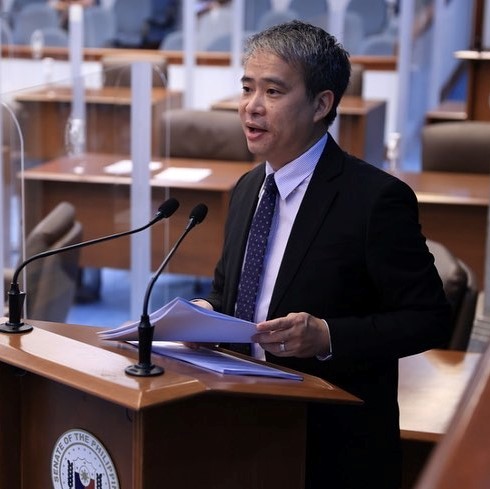Senator Joel Villanueva, principal author and sponsor of Republic Act No. 11165 or the Telecommuting Act, said the push to adopt alternative work setup is timely to ease the plight of the workers in their commute and boost productivity that suffer due to the scourge of traffic congestion that is bound to get worse with the projected EDSA overhaul this year.

The Chairperson of the Senate Committee on Labor made this remark after the Marcos administration vowed to promote alternative work arrangements to help achieve its employment targets under the Philippine Development Plan 2023-2028 through a multi-faceted approach to ensure an efficient labor market.
“We have been advocating for this since we pushed for the enactment of the Telecommuting Act, as this will benefit both employers and employees in sectors that can operate through remote operation,” Villanueva said.
The Telecommuting Act, also known as the “Work-from-Home Law,” provides a framework for telecommuting arrangements and mandates the Department of Labor and Employment (DOLE) to identify and recommend industries, including emerging ones, that can shift to work-from-home setups.
“The Work-from-Home Law, as we call it, puts a system in place so we could open up opportunities to people who need jobs but are constrained from leaving their homes, such as parents who take care of the household, or are in the provinces who cannot relocate and leave their families behind to find work in Metro Manila,” the senator said.
A 2018 JICA study reported that traffic congestion in Metro Manila alone costs the Philippine economy at least ₱3.5 billion per day, amounting to a staggering ₱1.27 trillion annually. Without intervention, this figure is projected to escalate to ₱5.4 billion per day by 2035.
The senator also urged DOLE to explore alternative work arrangements that promote work-life balance. These arrangements would not only enhance productivity and efficiency but also help employees avoid the horrendous traffic that consumes both time and money.
“Let’s embrace the power of technology to redefine how and where we work,” Villanueva said.
“Work from anywhere is now the name of the game, which means finding ways to empower our people to work in ways that boost their productivity, and override geographical boundaries,” Villanueva ended.





